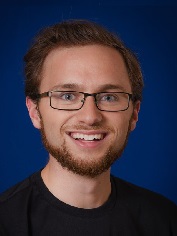Some time ago, my fianceé and I watched a production of The Hunchback of Notre Dame at the La Mirada Theatre. Though this could have been just another stop on a journey for the two of us to become more cultured, we were excited to see this particular production because the lead role was played by a deaf man. In the musical, Quasimodo (the lead role) is a man cast away from society who has lived his entire life in a bell tower; the constant ringing of the bells leads to the character’s deafness. Though director Glenn Casale could potentially have cast any actor to fill this role, Casale chose John McGinty to play the lead. It may seem confusing to think of a lead in a musical being unable to hear, but the effect was prolific. Though the audience heard Quasimodo’s songs through the voice of another actor (McGinty was always accompanied by a gargoyle, played by Dino Nicandros), it would be incorrect to say that McGinty did not himself sing. As Nicandros would sing as the voice of Quasimodo, McGinty sang through his hands as he performed each piece in American Sign Language (ASL).
My fianceé and I have seen other shows hire ASL interpreters to perform each scene off-stage for those unable to hear the production, but the casting of McGinty was not meant only as a courtesy to the hearing-impaired. This powerful partnership of sound and sign allowed an audience otherwise ‘deaf’ to the lead actor’s singing to understand the heart behind the words being sung. An actor in a musical does more than sing when they perform. Therefore, this casting choice allowed myself with the other hearing-abled audience members to have the chance to see and understand the emotion McGinty poured into his performance of each piece.
Perhaps most stunning was the choice to show McGinty at the beginning of the production to walk on stage, dignified with a look of pride on his face, as he saluted Nicandros before donning the ‘hunchback’ costume and ‘getting into character’. The reverse action was performed at the end of the musical showing that while the character of Quasimodo may seem awkward to the audience, the actor playing him was a man with great self-respect. I left the theater that night with questions about disability I hadn’t really asked myself before; questions about personhood and identity for those with disabilities.
These questions lead me to speak with Vix Jensen-Collins, a writer and long time disability rights activist, about how those with disability are viewed in an able-bodied world. At the very start of our conversation, Vix summed up an important point that needed to be made for any real discussion to be had. As an activist, Vix wants to help people understand that “this” is important; i.e. understanding disability. While those without disability may feel as if disability does not affect them, the fact that there are disabled people in the world should be reason enough to care. After all, she pointed out, any able-bodied person is one tragic accident or illness away from becoming disabled themselves. Accepting the truth that the cause of those with disabilities matters is – as she points out – the first step to having any understanding regarding those with disabilities.
I asked Vix if recognition of limitation was a challenge those with disabilities face. “Yes,” was the the absolute answer. Vix explained to me that in our society built for the able-bodied, productivity is viewed as a sort of moral standard for people’s lives no matter who you are or what physical capabilities you may have been born with. Especially in this generation, people may joke with a touch of sincerity about rewarding themselves for ‘being productive’, ‘doing life’, or ‘adulting today’ as if one’s success is measured by the amount of work completed or the activities done. In such a society, those with a limited amount of productivity are branded as lazy and undeserving of life’s enjoyments. The problem, Vix explains, is that unfair expectations may be placed on those who are not as physically able to navigate this able-bodied world, especially those whose disabilities are not as easily recognized.
As I began to ask more questions about the reality of the disabled, I began to become more aware of my own misunderstandings and ignorance. As a child, I was taught that while some people have disabilities these people were not to be looked down upon or pitied. Explaining this to Vix, she encouraged me to consider that while the disabled can live fulfilling lives, it would be wise to acknowledge the danger of suggesting that people with disabilities are simply differently-abled, with no more or less of a struggle than anyone else. Indeed, a phrase like ‘handi-capable’ is not always appreciated and is “tricky language” which ultimately serves to make able-bodied people feel more comfortable around people with disabilities (without feeling the need to provide for the rights of the disabled). Vix then laughs at the idea that people with disabilities somehow have super-powers which compensate for the challenges they face. The truth is that while people with disabilities can be incredibly capable people they will still have to navigate a world that is not built for them.
As a courtesy to myself and my fellow audience members at La Mirada’s “The Hunchback of Notre Dame”, McGinty’s singing was translated from ASL into English. The result was not only several audience members moved to tears (I wasn’t crying…just some dust caught in my eye) but hopefully audience members who have since decided to open their ears to the cause of the disabled, deaf or otherwise. I ended my conversation with Vix asking her what myself and other able-bodied people could do to help make a world where those with disabilities are neither babied nor branded as lazy. Her answer was – of course – to simply accept that the mere existence of the disabled means their cause should matter to us all, and to open our ears and listen.
Vix Jensen-Collins can be found on Twitter at @Spirit_Movie and at YouTube.com/bilingualbookworm

Mathijs D. Arens
Mathijs D. Arens is from San Francisco, California and currently works for The Salvation Army in Glendale. Mathijs graduated from UC Berkeley in 2014 with his Bachelor’s degree in Anthropology. He enjoys acting, writing, and singing in public.

